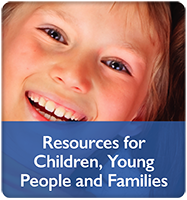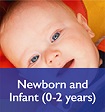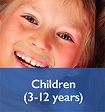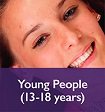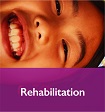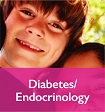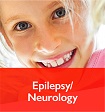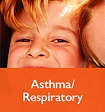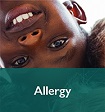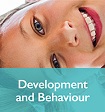Children (3 - 12 years)
Throughout their childhood years, children grow and mature significantly. In addition, they begin to develop confidence in their own abilities, start to identify how they fit in with other children and start initiating their own activities.
Health queries for children ages 3 to 12 years usually fall into one of four areas:
- nutrition
- sleep
- growth
- developmental/behavioural screening and assessment
More complex health issues requiring specialist care can include:
- asthma allergies
- poor growth
- behavioural problems and developmental delay
- autism spectrum disorder (ASD)
- attention deficit hyperactivity disorders
- brain conditions such as epilepsy
- complex disabilities
- urinary and faecal incontinence
- problems with muscles or bones
Who we care for
Most children will get good health care from their local child health centre and/or their general practitioner (GP). GPs may refer on to a paediatrician (all paediatricians have training in both child and adolescent health care).
Paediatric clinics for children are located at the Royal Hobart Hospital, Launceston General Hospital, North West Regional Hospital (Burnie) and Mersey Community Hospital (Latrobe).
What to expect at clinic
It is important that children are involved in their own health care from an early age. In our paediatric clinics, children (with the help of their caregivers) will be asked to talk to health professionals directly and to make healthcare decisions that are age-appropriate.
It is recommended that before you go and see the paediatrician/paediatric registrar you consider doing the following:
- Write down the reason for the visit and any concerns your child/family has mentioned
- Make a list of all the questions you want to ask at the appointment
- If possible, write down a list of all medications and complementary therapies.
The staff at the paediatric clinic will then work closely with your child’s general practitioner and allied health services to care for your child as they grow.
The children’s health care team begins with
| The child (you) and family/caregivers | You and your caregivers are important members of your health care team, you look after yourself and your condition every day. You can tell us about your health and how your condition affects your everyday life. We will include you in decisions about your health. |
| General practitioner (GP) | Your GP takes care of your general health needs within the community. They often provide initial assessment and can refer to a paediatrician if more specialised care is required. Your GP can provide care in between more specialist appointments and assist with prescriptions and community care plans/action plans for your family or school. They will receive updates from other professionals. |
| Paediatric registrar | The paediatric registrar is a doctor training to become a specialist such as a paediatrician. Once they have met with you they report back to the paediatrician or relevant specialist. |
| Paediatrician | The paediatrician is a key member of your health care team, they provide specialist medical care and look at your health holistically. Your paediatrician often takes the lead in providing a diagnosis or organises referrals for tests or specialist input. They look after your holistic care needs and receive updates from other members of your health care team. |
| Specialist nurse/ clinical coordinator | For children with complex health problems, the specialist nurse is your main contact point. They will help you to organise your care and assist with communication between team members. You can talk to them if you have questions or concerns. Depending on your needs, the nurse may provide education and support, giving you the information you need to care for your condition. |
| Nurse practitioner (NP) | A nurse practitioner is a registered nurse with the experience, expertise and authority to diagnose and treat people of all ages with a variety of acute or chronic health conditions. Nurse practitioners have completed additional university study at Master’s degree level and are the most senior and independent clinical nurses in our health care system. |
Depending on individual needs the following health professionals may also provide care
| Dietitian | The dietitian will assist in the assessment and management of your nutritional needs related to your condition. They will talk to you about your diet and make recommendations to support your health and growth. |
| Physiotherapist | Physiotherapists are experts in musculoskeletal assessment and treatment. They can help with motor skills (such as walking), joint problems, pain and fatigue. |
| Speech pathologist | Speech pathologists are experts in speaking, language and communication. They can also help with assessment and therapy around feeding and swallowing. |
Occupational therapist (OT) | Occupational therapists help people to participate in activities they find meaningful and daily activities that they need to do. These activities include self-care (such as mealtimes or getting dressed), play, learning, school, work, leisure, hobbies and spending time with friends and family. Occupational therapists assess and assist with movement, thinking, sensory processing and equipment. |
| Social worker | Social workers can provide counselling and teach skills to help you cope with problems linked with your health, relationships or circumstances. They can help you understand your rights and help to advocate for you. |
| Psychologist | A psychologist works with you to understand the impact your condition has on your life and helps you to overcome challenges, change your behaviour and improve your mental health. |
| Mental health clinicians | Mental health professionals can be doctors, nurses, counsellors or other health care staff that help with different aspects of emotional and mental health and wellbeing. |
| Paediatric intensivist |
How to access care for children
A general practitioner referral is required. Your GP can submit the referral by following the directions on the Department of Health, Tasmania's outpatient clinics website.
Other supports >>
| Child Health and Parenting Service (CHaPS) |
CHaPS work in partnership with families of children 0-5 years of age and aim to enhance the health and wellbeing of all young children in Tasmania. They provide child health and parenting information, support, assessment and advice. Services provided include completion of age-related growth and developmental
assessments from 2 weeks to 4 years of age and assistance with breastfeeding/feeding issues, nutrition, sleep and settling, post-natal depression and wellbeing, child-parent communication and behaviour management. Services are provided from many community locations.
You can contact CHaPS directly on 1300 064 544 24/7 parenting information and support is available through an associated service, The Parent Line on 1300 808 178 |
| Family Support Services (Strong Families Safe Kids) | Some families may require increased support through a community organisation due to the complexity of their situation or other vulnerabilities. |
| St. Giles | St. Giles are a state-wide organisation that have a range of allied health professionals offering community-based therapy and other disability services. Services offered in each geographical area differ. |
| National Disability Insurance Scheme (NDIS) | Depending on your child’s needs, they may be eligible for NDIS funding for disability support and equipment. NDIS provides reasonable and necessary supports to people with lifelong functional impact from their disability. |
| School | Through the Education Department, schools can access extra support or services to meet health and disability needs. It is important to discuss any individual requirements with school staff. |
| 24-hour crisis lines |
There are crisis lines available for young people 24 hours per day these include:
Kids Helpline 1800 551 800 (5-25 year olds) Lifeline 13 11 14 Family/relationship violence or sexual assault 1800 RESPECT (1800 737 732) |
Contact us >>
| South | North | North West |
|---|---|---|
Royal Hobart Hospital Phone: (03) 6166 0000 | Launceston General Hospital Phone: 1300 977 694 | North West Regional Hospital Phone: (03) 6493 6300 Mersey Community Hospital Phone: (03) 6478 5219 |
Disclaimer: this website contains general health information and does not replace the advice of a health professional.


